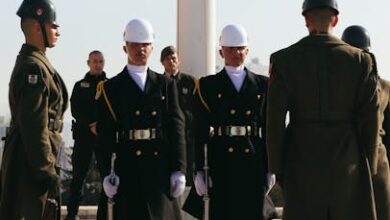Beyond the Scoreline: The Strategist’s View

In the high-stakes world of international football, where every match is scrutinised and every performance dissected, it’s rare to hear a manager label a routine win as a “good test.” Yet, that’s exactly the sentiment expressed by Argentina’s pragmatic head coach, Lionel Scaloni, after his world champions secured a comfortable victory against Angola. On the surface, it might seem like just another friendly in the long march between major tournaments, a mere formality for a squad still basking in the glow of global triumph. But for Scaloni, and indeed for any shrewd observer of elite sport, these encounters offer far more than just three points or a clean sheet.
What does a “good test” truly entail for a team that has already scaled the highest mountain? For the casual fan, seeing Lionel Messi orchestrate play and add to his legendary tally is entertainment enough. But for the architect of a world champion side, it’s about the microscopic details, the subtle shifts, and the unwavering commitment to continuous improvement. It’s a philosophy that speaks volumes about why Argentina stands where it does today – not content to rest on laurels, but always seeking the next challenge, the next lesson.
Beyond the Scoreline: The Strategist’s View
Scaloni isn’t a manager known for grand pronouncements or unnecessary theatrics. His approach is methodical, grounded, and intensely focused on the collective. So, when he praises a “good test” after a seemingly routine win against Angola, it signals a deeper evaluation than just the final score. For a team at the pinnacle of its sport, finding genuine competitive challenges outside of major tournaments can be difficult.
These so-called “routine” matches against opponents who might not be top-tier often become invaluable laboratories. They provide a low-pressure environment to experiment with tactical adjustments, integrate new or fringe players, and reinforce the established playing philosophy. Perhaps Scaloni was assessing how his team handled a compact defense, or how effectively they transitioned from defense to attack against a physically strong opponent. Maybe he was looking at specific player combinations, giving minutes to those knocking on the door, or simply ensuring the team maintained its intensity and focus, regardless of the opponent’s ranking.
The post-World Cup period is tricky. There’s an inevitable emotional comedown and the immense pressure of living up to the “world champion” tag. Scaloni understands that complacency is the deadliest enemy. By treating every game as a significant opportunity for growth and evaluation, he instils a culture where standards never drop, and the hunger for improvement remains insatiable. This particular match against Angola, therefore, wasn’t about the individual brilliance of a player (though there was plenty), but about the collective’s discipline and adherence to the system.
Messi’s Enduring Magic and Team Dynamics
Of course, you can’t talk about Argentina without mentioning Lionel Messi. The background info states he “starred for the world champions in Africa,” and that’s hardly a surprise. Even in what might be considered a lower-stakes international friendly, Messi’s presence elevates the occasion, demands attention, and often dictates the rhythm of the game. His continued excellence, even at this stage of his illustrious career, is a testament to his unparalleled dedication and talent.
But beyond the individual highlights, Messi’s role in these matches is also about maintaining the team’s balance and cohesion. He’s the undisputed leader, and his movements, passes, and goals inspire those around him. For Scaloni, it’s about ensuring that the team structure can still function optimally with its talisman on the field, while also building resilience for moments when he might be rested or unavailable. These are the subtle intricacies that a manager like Scaloni is constantly observing.
The Quiet Evolution of the Supporting Cast
While Messi inevitably draws the spotlight, these “good tests” are crucial for the development of the broader squad. Players like Enzo Fernández, Julián Álvarez, Alexis Mac Allister, and others who shone in Qatar are now seasoned internationals, but they continue to evolve. For newer faces or those vying for a regular spot, matches against teams like Angola offer a chance to prove their mettle, adapt to the international pace, and solidify their understanding of Scaloni’s intricate game plan. It’s in these moments that future stars are often forged, gaining confidence and valuable experience away from the intense glare of a major tournament.
Maintaining the World Champion Mentality
The biggest challenge for any team that reaches the pinnacle is not getting there, but staying there. The weight of expectation, the increased scrutiny, and the psychological hurdle of maintaining peak performance after achieving the ultimate goal are immense. This is where Scaloni’s emphasis on every match, every training session, as a “good test” truly comes into play.
It’s a powerful mental game. By not allowing any fixture to be treated as an easy run, he cultivates a consistent level of professionalism and intensity. The world champions must always perform like world champions, regardless of the opposition. This means pressing hard, making intelligent runs, staying organised defensively, and being clinical in attack – every single time. It’s a message that resonates through the squad: we achieved greatness, but we must continue to earn it, day in and day out.
These matches are also crucial for team bonding and morale. Traveling together, playing together, and celebrating routine wins together helps to reinforce the strong camaraderie that was so evident during their World Cup campaign. It’s about keeping the core unit tight, focused, and ready for whatever challenges lie ahead, be it World Cup qualifiers, the Copa América, or eventually, the defense of their global title.
A Testament to Relentless Pursuit
In the grand tapestry of international football, a routine win against Angola might seem like a mere footnote for the reigning world champions. However, Lionel Scaloni’s appreciation of it as a “good test” speaks volumes about the meticulous planning and relentless pursuit of excellence that defines his Argentina side. It highlights a coaching philosophy that values growth over glory, process over outcome, and continuous improvement above all else. With Lionel Messi still orchestrating magic and a hungry squad eager to prove their worth, these seemingly ordinary matches become critical building blocks, ensuring that the Albiceleste remain sharp, united, and ready to face the world, one “good test” at a time. Their journey didn’t end in Qatar; it simply entered a new, fascinating phase of sustained greatness.





